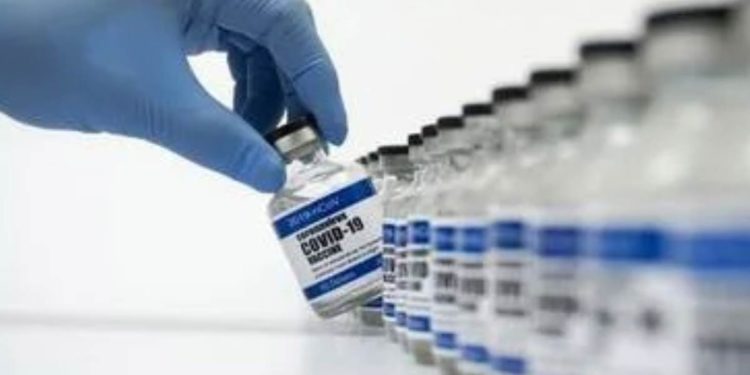The Union Health Ministry, on 9 January, announced that the COVID-19 vaccination drive will commence on 16 January across the country. Ahead of the nationwide Covid vaccination programme, Indian Prime Minister, Narendra Modi has been holding online meetings with Chief Ministers of all states to discuss the COVID-19 situation in the country. Closer home, the district-level task force of Vizag too has been taking measures to stay in all readiness. With the Covid vaccine drive set to begin in Vizag on Saturday, here are 8 things that you should know about the upcoming programme.
#1 A committee comprising 17 members, led by Visakhapatnam District Collector, V Vinay Chand (IAS), has been formed to monitor the arrangements for the Covid vaccine drive in Vizag.
#2 A walk-in cooler (WIC), of 40 cubic metres capacity, has been set up at the District Immunization Office in Visakhapatnam to accommodate the storage of vaccines. It may be noted that the facility would be able to house about 1.75 lakh doses of vaccine.
#3 From the cold chain points, the vaccines will be shifted in freezer boxes to the session centres, where it will be administered to the people, as per the listing. In the Visakhapatnam agency, as many as 44 weekly market points have been identified to host the session centres.
#4 During the first phase, close to 60,000 healthcare workers including doctors, lab technicians, and nurses among others, will be vaccinated across the district.
#5 The second phase will have other frontline workers, who amount to 2 lakh, receive the vaccine doses.
#6 About 8 lakh people, who are aged above 50 years or report co-morbidities, will be administered doses in the third phase. The remaining population in Visakhapatnam will receive the Covid vaccine in the fourth phase.
#7 As many as two dry runs (mock exercises) for the Covid vaccine were held at three hospitals in the district to familiarise the staff with the process.
#8 Every vaccination centre in Vizag will house an AEFI (Adverse Event Following Immunisation) committee, comprising a cardiologist, neurologist, neurosurgeon, general physician, and anesthesiologist to monitor the condition of the patient in case of an adverse event.










Discussion about this post